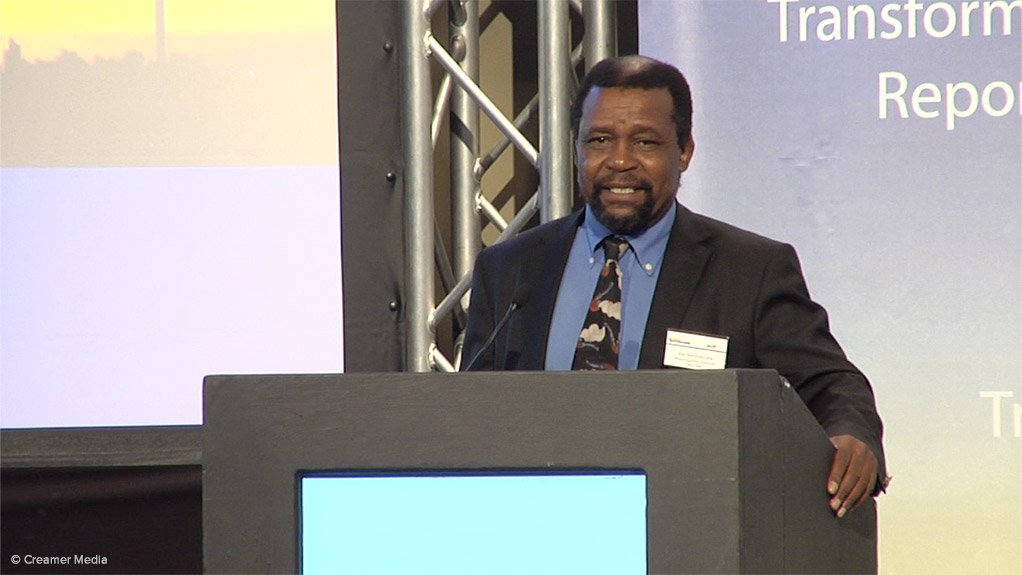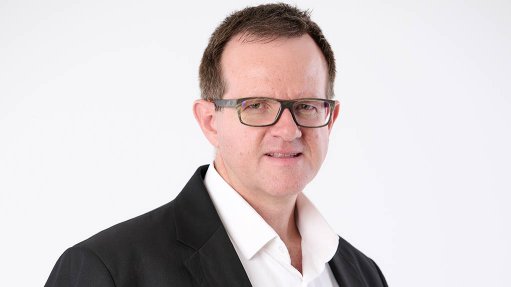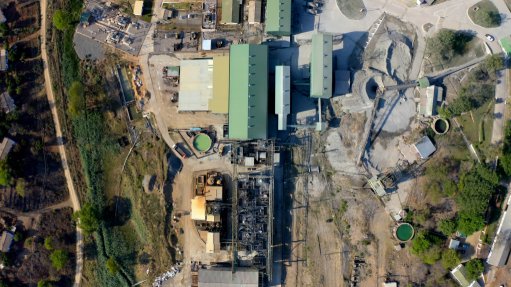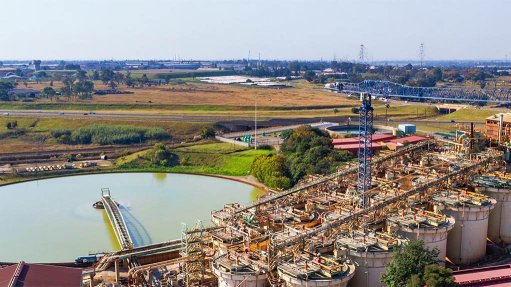South Africa could play indispensable role in the global hydrogen value chain, says Mistra's Netshitenzhe
Speakers participating in the Mapungubwe Institute for Strategic Reflection’s (Mistra’s) ninth yearly platinum group metals (PGM) roundtable, on November 27, agreed that South Africa has potential to become a leading player in the hydrogen and fuel cell industry.
By developing capacities, the country can become an indispensable part of the whole hydrogen value chain from mining of minerals and beneficiation, to manufacturing and services, said Mistra executive director Joel Netshitenzhe.
As South Africa progresses its hydrogen economy and figures out its future place in the global electric vehicle (EV) battery value chain, Mistra aims to ensure that the benefits of these emergent industries accrue to all, including youth and communities.
Additionally, the institute is focused on securing the global supply of green hydrogen by ensuring PGMs and other critical minerals remain a stable and mutually beneficial source for investment.
Netshitenzhe cited estimates that 35-million tonnes of green hydrogen will be produced by 2035 and form 20% of the EU's energy mix by 2050, while the world is also moving towards more fuel-cell-powered trains, small vehicles, ships and aircraft.
China alone is anticipated to have one-million fuel cell EVs on the road by 2035.
Among the challenges for the world and the African continent, in particular, is supplying the minerals needed for green energy transitions, finding the appropriate balance between supply and demand, financing for the many bankable projects, and green hydrogen regulations and standards that need to be developed.
More information and research are needed on hydrogen’s energy intensity and cost of production and storage.
Some electrolyser and fuel cell manufacturers, such as Mitochondria Energy Company in South Africa, have identified the supply of components as another major challenge, while others have cited intermediate capacities in the value chain as a concern.
Accordingly, Mistra and its partners, such as the JSE, are striving for consensus on setting up a metals exchange in the country for endowments that South Africa has in abundance, to help lower the scepticism and commercial ebbs and flows that are common with nascent technology.
“We must demonstrate the green hydrogen industry’s viability through actual practice,” Netshitenzhe said.
HYDROGEN CONTEXT
Department of Science, Technology and Innovation (DSTI) transport and renewable energy deputy director-general Khavharendwe Rambau explained that South Africa’s hydrogen journey started with a National Hydrogen and Fuel Cell Technologies Research Development and Innovation Strategy which was approved by Cabinet in 2007.
Government intended to position South Africa as a global leader in hydrogen production and fuel cell technologies, leveraging the country’s natural resource endowment of PGMs.
The particular goals included establishing a base for hydrogen production, storage and related processes, as well as developing PGM-based catalysts and building capacity to address niche applications tailored to regional developmental challenges.
Efforts by government and research centre Hydrogen South Africa (HySA) have since culminated in the Hydrogen Society Roadmap, which envisions a sustainable and competitive hydrogen economy by 2050 and aligns stakeholders on hydrogen-related technologies – to create an environment where investment decisions can be made to unlock the socioeconomic benefits for South Africa.
The roadmap is being led by various government departments including Mineral Resources and Energy; Transport; Trade, Industry and Competition; Public Works and Infrastructure; Science and Innovation; and the Department of Forestry, Fisheries and the Environment.
HySA has deployed fuel cells at various sites in South Africa to test and trial the technology, including at Covid-19 facilities at 1 Military Hospital, in Pretoria, at a clinic in Randburg for vaccine preservation, at Impala Platinum Refineries in Springs for forklifts, at KwaZulu-Natal’s Disaster Management Centre, at schools in Comfimvaba, at University of the Western Cape Nature Reserve, at North-West University in Potchefstroom to test hydrogen use in underground mining and at Poelano Secondary School, in Venstersdorp.
HySA has a range of patents that have been granted or filed, with 70% of its patents relating to commercial products.
Catalytic projects that will stimulate the hydrogen economy include Hive Coega Green Ammonia, which is valued at $4.6-billion and is based near Port of Ngqura; the Boegoebaai Special Economic Zone, which will comprise an electrolyser park and green hydrogen and green ammonia facilities for domestic use and export; and green steel production at the mothballed Saldanha steel works plant.
The DSTI has been facilitating partnerships locally and internationally to assist in the implementation of such catalytic projects.
The department has identified more opportunities for catalytic projects in the Hydrogen Valley initiative, or Platinum Valley initiative, which comprises mobility and industrial projects that can stimulate domestic demand across Gauteng, the Free State and KwaZulu-Natal.
The DSTI last year garnered Cabinet approval to establish an inter-Ministerial committee on the hydrogen economy to oversee activities and assist in coordination efforts of all hydrogen activities happening in South Africa.
Mineral research organisation Mintek, in turn, has developed a suite of fuel cell catalyst products including 20 formulations. Eleven of these have been successfully scaled to one kilogram batches. The organisation is driving a strategic programme for fuel cell manufacturing.
Challenges in this regard, however, remain the cost of platinum-based fuel cell systems and the high volume of manufacturing that is needed to achieve economies of scale.
Moreover, South Africa signed a memorandum of understanding (MoU) with Japan in September 2023 on creating an export market for green hydrogen and green ammonia, while South Africa also became a member of the Clean Fuel Ammonia Association in November 2023.
The Western, Northern and Eastern Cape provincial governments also signed an MoU last year to cooperate on the development of green hydrogen in South Africa.
In the private sector, Sasol, Anglo American and BMW signed an MoU last year that will bring hydrogen fuel cell EVs to South Africa, as well as hydrogen refuelling infrastructure.
Rambau reiterated government’s stance that hydrogen is a valuable energy to decarbonise industries and reindustrialise the economy, as well as a promising opportunity to enhance exports.
She believes South Africa has a major competitive advantage in the hydrogen economy owing to its renewable-energy resources and availability of land, as well as strategic partnerships it has with the EU, Japan and South Korea.
Rambau also believes there to be an opportunity for cross-border infrastructure to link production with demand centres, from a regional integration point of view.
“The global developments in the energy transition provide the Southern Africa region with an opportunity to create new industries linked to minerals required for low carbon energy technologies.
“The availability of critical minerals in Africa provides opportunities for local value addition, regional integration and industrialisation,” she explained.
She added that the region could leverage developments in the renewable-energy and hydrogen economy to position itself as a global player in the provision of low-emissions hydrogen, ammonia and sustainable aviation fuels.
In this regard, she stressed the importance of continued partnerships and support to unlock more tangible and viable opportunities.
Article Enquiry
Email Article
Save Article
Feedback
To advertise email advertising@creamermedia.co.za or click here
Press Office
Announcements
What's On
Subscribe to improve your user experience...
Option 1 (equivalent of R125 a month):
Receive a weekly copy of Creamer Media's Engineering News & Mining Weekly magazine
(print copy for those in South Africa and e-magazine for those outside of South Africa)
Receive daily email newsletters
Access to full search results
Access archive of magazine back copies
Access to Projects in Progress
Access to ONE Research Report of your choice in PDF format
Option 2 (equivalent of R375 a month):
All benefits from Option 1
PLUS
Access to Creamer Media's Research Channel Africa for ALL Research Reports, in PDF format, on various industrial and mining sectors
including Electricity; Water; Energy Transition; Hydrogen; Roads, Rail and Ports; Coal; Gold; Platinum; Battery Metals; etc.
Already a subscriber?
Forgotten your password?
Receive weekly copy of Creamer Media's Engineering News & Mining Weekly magazine (print copy for those in South Africa and e-magazine for those outside of South Africa)
➕
Recieve daily email newsletters
➕
Access to full search results
➕
Access archive of magazine back copies
➕
Access to Projects in Progress
➕
Access to ONE Research Report of your choice in PDF format
RESEARCH CHANNEL AFRICA
R4500 (equivalent of R375 a month)
SUBSCRIBEAll benefits from Option 1
➕
Access to Creamer Media's Research Channel Africa for ALL Research Reports on various industrial and mining sectors, in PDF format, including on:
Electricity
➕
Water
➕
Energy Transition
➕
Hydrogen
➕
Roads, Rail and Ports
➕
Coal
➕
Gold
➕
Platinum
➕
Battery Metals
➕
etc.
Receive all benefits from Option 1 or Option 2 delivered to numerous people at your company
➕
Multiple User names and Passwords for simultaneous log-ins
➕
Intranet integration access to all in your organisation





















